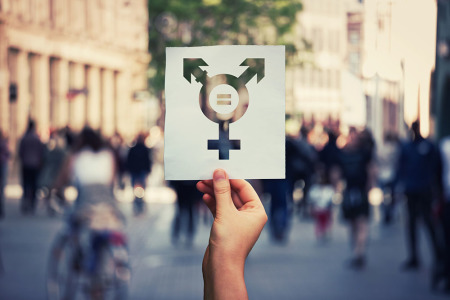Teens sue Ariz. Medicaid program, claiming discrimination for not funding trans surgeries

Two teenagers in Arizona have sued the state's Medicaid program, arguing that the state was violating their civil rights by declining to pay for gender transition surgeries.
Reportsindicate that approximately 100 residents of the Grand Canyon state may be affected by this lawsuit, which is aiming to create a class action for Medicaid recipients under the age of 21 wishing to have their breasts amputated, euphemistically referred to as "chest reconstruction." Presently, Arizona's Medicaid agency bans such surgical procedures.
This particular class is defined in the lawsuit as "individuals who have been unable and will be unable" to acquire coverage through the state's Health Care Cost Containment System "for medically necessary male chest reconstruction surgery because of the [prohibition], and as a result, have faced or will face delayed or denied access to these medically necessary treatments."
Under the banner of anti-discrimination provisions in the Affordable Care Act, the claimants argue that a 1982 state ban on using Medicaid funds is an affront to their civil rights.
The lawsuit goes on to argue that two biological females who came out as transgender a few years ago experienced challenges as puberty started changing their bodies and that they had to rely on breast binders and heavy hoodies, which is not easy in the Arizona summer heat, in order to appear more masculine.
“Categorically excluding surgical treatment for gender dysphoria impermissibly discriminates against transgender people,” said Asaf Orr, director of the Transgender Youth Project at the National Center for Lesbian Rights.
“There is no legitimate justification for Arizona’s refusal to provide this critical care to transgender Medicaid recipients. Instead, excluding that care creates unnecessary barriers that prevent transgender young people from thriving in every aspect of their lives and can cause lifelong harms.”
Presently, 22 states and Washington, D.C., cover transgender medical practices through government agencies. Eighteen states have no explicit policy and 10 states prohibit it.
The lawsuit comes amid fluctuating laws, policies and regulations pertaining to transgender-identifying people.
In June, the Health and Human Services Department returned to its previous policy definition of "sex" as solely biological, male and female. The Obama-era HHS had added "gender identity" as part of its definition of sex.
Days later, the U.S. Supreme Court recognized "transgender status" as a legitimate category as it relates to sex discrimination employment law in Bostock v. Clayton County. The decision consolidated three cases, two of which centered around gay employees being fired and one transgender-identified male who presented as a woman being fired. How the interpretation in Bostock will be extended and applied in other areas of law remains to be seen.
Last month, several Democratic state attorneys general filed a suit against the Trump administration in an effort to stop the revision of the HHS policy returning agency language and standards to the biological definition of sex.
Transgender activists have long claimed that experimental gender-transition medical practices and procedures such as cross-sex hormones and surgeries are necessary medical care for their mental health and well-being.
Earlier this month, the American Journal of Psychiatry published a correction to a study that was released last year claiming that gender-transition surgeries proved beneficial to the mental health of patients who had undergone such procedures.
Upon further review of the data, the study “demonstrated no advantage of surgery in relation to subsequent mood or anxiety disorder-related health care visits or prescriptions or hospitalizations following suicide attempts," the correction note from the authors read.






















